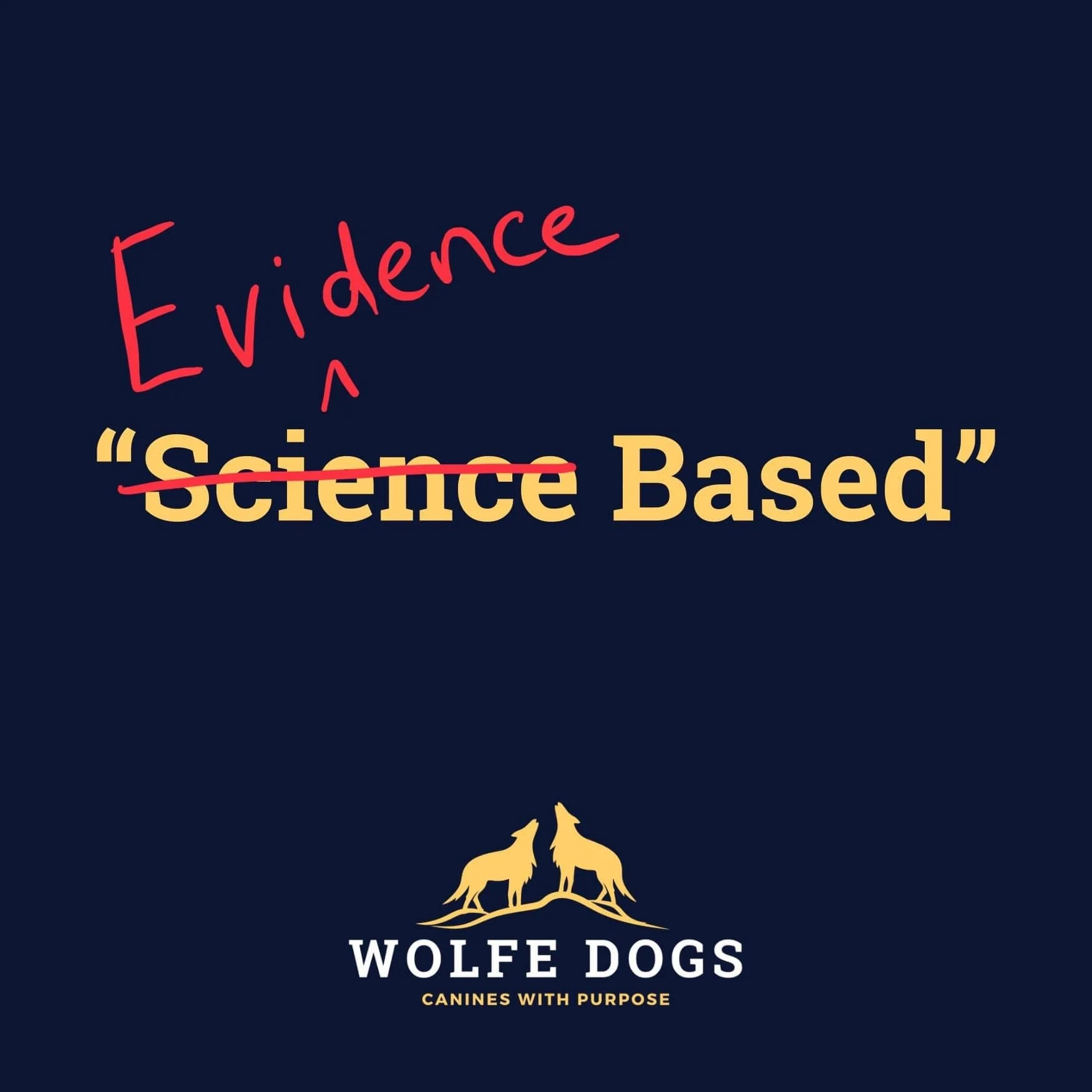Evidence Based > “Science Based”
Evidence > Science
I’m a proud science geek, starting out as a high schooler attending science camps and national awards, and growing into a dog trainer whose idea of fun on the weekend includes studying all things influencing canine behaviour - learning theory, ethology, neurobiology, endocrinology and more. That marriage of art and science is part of what keeps me loving dog training as there’ll always be something new to learn that can be applied to real life cases.
But “science” can also be one of the worst parts of the dog training world, with the real world hands on application often being forgotten.
True science is all about coming up with theories and testing these theories to find the truth, with research papers being investigations that can provide some insights rather than a how-to manual.
Through a good scientific process we can find evidence about what works and why. However with poor process we can find information that supports just about any opinion we like; providing a fancy looking citation or a shiny psychology website link to give credibility where it might otherwise be lacking, supporting terrible or ineffective training and even being used to falsely justify the passing of legal restrictions on lifesaving tools (as in the case of some Australian states recently).
This makes it really hard for owners to find some decent help or know where to turn to, because it all looks pretty legitimate on the surface with the big long reference list and it’s not until we actually dig in a little deeper that the problems start to appear.
📚For example, in one popular study (regularly cited by trainers when arguing against ecollars and referenced in further studies on the same subject) there are enormous flaws, including 1) environmental bias with the ecollar training taking place in the Scottish winter on a working farm vs the non ecollar group working in a training centre with penned stock and nice weather, and 2) a lack of goal consistency with trainers working towards different outcomes. These factors alone earn the study and the studies based off that one a place in the overflowing trash science pile but hey - however bad the study, it supports some big feelings so it keeps getting dragged out as supporting “evidence”.
So what does this mean for you as an owner looking for a trainer or reading training articles in an attempt to resolve a challenge on your own? Mostly, take these citations with a grain of salt and recognise that not all science is going to be good science or even relevant to your situation. You’re not expected to go read every study (that’s us trainers job!) but do keep an open mind, and remember that absolutes aren’t really a thing when dealing with sentient beings in the real world.
And if you do feel like going down the rabbit hole and reading through a few papers referenced in a post on a trainers page (or elsewhere in life), keep the following in mind:
❓ Who is funding and/or publishing the study, and do they have an invested interest in ensuring the results display a certain outcome?
❓ What steps have been taken to control variables in the study set up to ensure it’s a fair comparison (eg environment, types of dogs, handlers, visuals used when analysing data introducing bias)?
❓Who is actually running the study? If using equipment, are they sufficiently experienced to use the equipment skilfully or (as in the case with many studies) are they are first year intern who has been handed a button and told to press it?
❓Do the discussion and conclusions actually match what the data shows? And do the headlines we read in the media actually match the study?
❓Are there allowances we need to make for differences in breed, or even species (eg using studies of rats in skinner boxes as the be all and end all in how to train a dog in the real world, or comparing animals in a controlled zoo environment to being in the real world full of uncontrolled distractions)?
❓Are we as the reader reading to understand, or to support a conclusion we have already reached (confirmation bias)?
Good training means using what works for the dog in front of you, with the support of good scientific evidence where relevant. It means keeping an open mind, and being ready to adapt as new relevant evidence comes to light. It doesn’t however mean blindly accepting poor “science” as fact.

